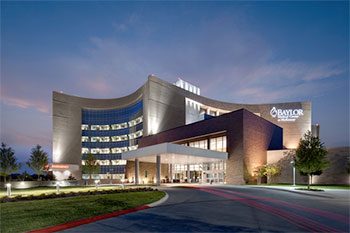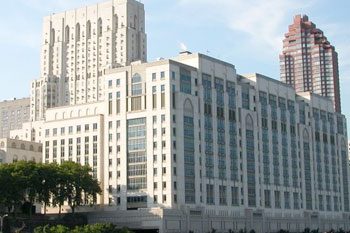David Sugarbaker, M.D.
Former Thoracic Surgeon | Lung Institute at Baylor College of Medicine
Dr. David Sugarbaker died Aug. 29, 2018. He was 65.

About Dr. David Sugarbaker
His Innovation in Treatment Was Unmatched
- Education
-
Weill Medical College of Cornell University
- Title
-
Former Director of Lung Institute, Chief of General Thoracic Surgery, Baylor College of Medicine
- Residency
-
Toronto General Hospital
Thoracic surgeon Dr. David Sugarbaker was a pioneer in the field of malignant pleural mesothelioma for nearly 30 years, earning his reputation as America’s foremost authority on the cancer caused by asbestos exposure.
Sugarbaker died Aug. 29, 2018. He was 65.
Sugarbaker left his world-renowned practice in Boston at Brigham and Women’s Hospital in 2014 to become director of the Lung Institute at Baylor College of Medicine in Houston, expecting to utilize his surgical and administrative expertise in helping patients.
“The goal is to take everything we’ve done [in Boston] with mesothelioma and apply it on a larger scale now,” Sugarbaker said about the move. “It’s just changing to a bigger stadium to work in. My commitment to patients as a caretaker, as a doctor, will be as strong, or stronger, than ever.”
Sugarbaker was a beacon of hope for mesothelioma patients. Many traveled across the country to see him.
He leaves a legacy of pushing the medical field toward more effective surgeries and better therapies for mesothelioma patients. He also trained some of the nation’s top mesothelioma specialists, which carry on his goal of finding a cure for the rare and aggressive cancer.
Sugarbaker Was the Gold Standard

“He is Dr. Mesothelioma,” said thoracic surgeon Dr. Abraham Lebenthal, who worked with Sugarbaker at Brigham and Women’s. “In this field, he is the gold standard.”
Sugarbaker also was the chief of general thoracic surgery at Baylor, where he built a multidisciplinary program that combines a broad clinical practice with a well-funded, mesothelioma research center.
He believed moving to Baylor Medical Center would move everyone closer to finding a cure for this asbestos-related cancer.
“As I say to patients, when hope is part of the equation, anything is possible,” Sugarbaker said after his move to Baylor. “I remain optimistic that we can, in the next decade, put together the right combination of patients and treatment to effect a cure, which is our holy grail.”
During his time in Boston, Sugarbaker developed and refined the extrapleural pneumonectomy (EPP), an aggressive surgery that involves removing the cancerous lung, parts of the diaphragm, effected lymph nodes and the lining surrounding the heart and lung.

Dr. David Sugarbaker's Legacy
As an innovative surgeon, Sugarbaker extended the lives of hundreds of mesothelioma patients, lowered the operative mortality rate and earned the respect of patients and peers.
Many of the younger mesothelioma specialists scattered across the country today once trained under Sugarbaker at Brigham and Women’s. It was there that he pioneered the multidisciplinary approach to mesothelioma treatment that has become standard at specialty centers. It combines surgery, chemotherapy and radiation.
He also was a leader in the personalization of mesothelioma treatment for each individual, moving away from the one-size-fits-all nihilistic approach. In Boston, his laboratories helped everyone gain a deeper knowledge of the cancer and its clinical subtypes.
Sugarbaker also directed and founded the International Mesothelioma Program, the largest of its kind in North America. It helped attract patients and staff to Boston from around the world.
Drawn to Mesothelioma

Sugarbaker did his cardiothoracic training at Toronto General Hospital and his surgical residency at Brigham and Women’s. He attended Cornell University Medical Center. He has been published extensively in various medical journals, and is a sought-after speaker at lung cancer and mesothelioma conferences.
He returned to Brigham to start his career as a surgeon in 1988, beginning his fight against mesothelioma. The nearby shipyards in the Boston area which were laden with asbestos produced an inordinate amount of mesothelioma cases that many people had never seen.
“Early in my career, it was laid at my doorstep,” he said. “And I took it as a challenge. It was a difficult cancer to treat, and with relatively poor outcomes, so you had to stick with it. When we started making significant strides, I was drawn to that.”